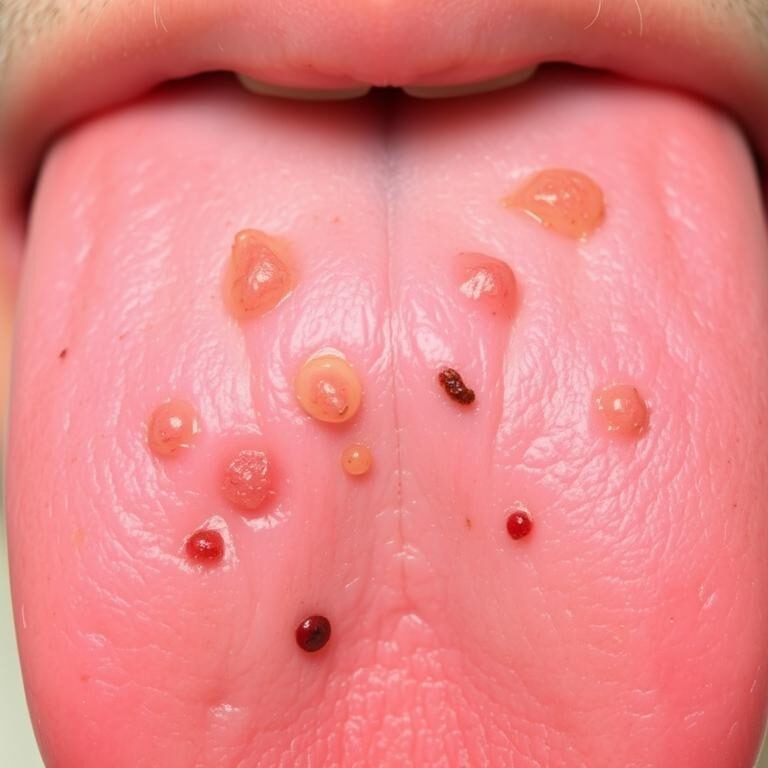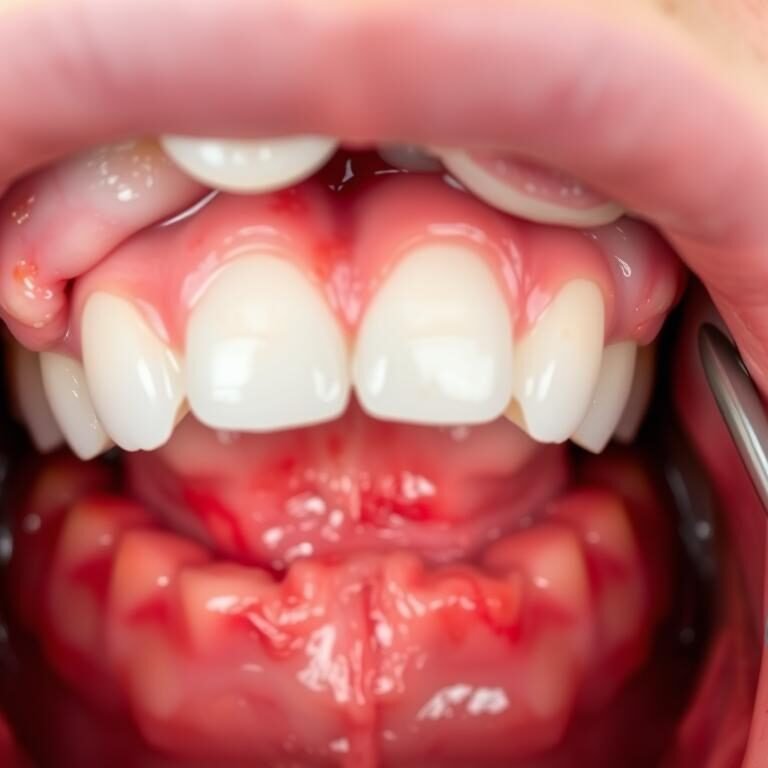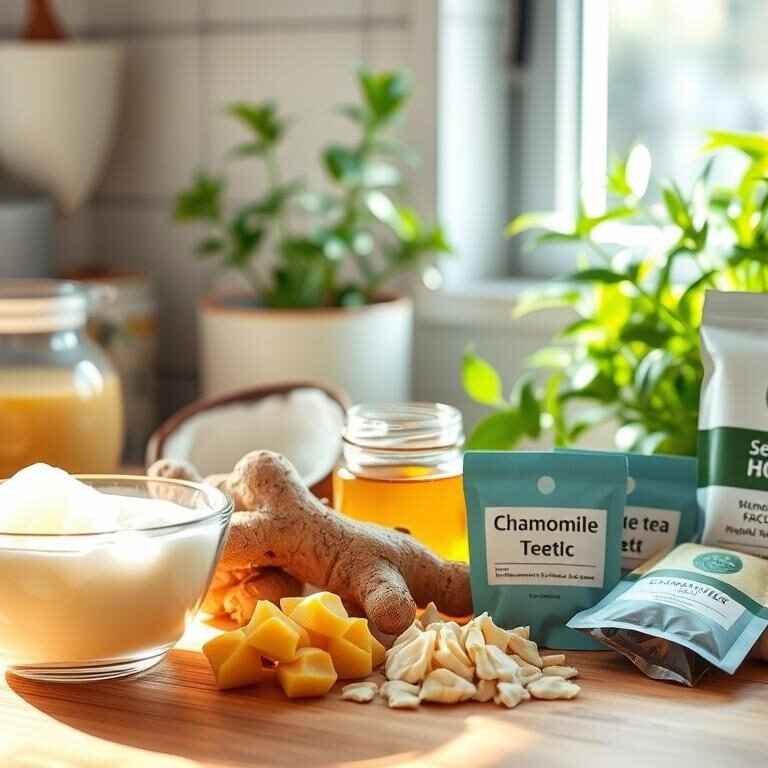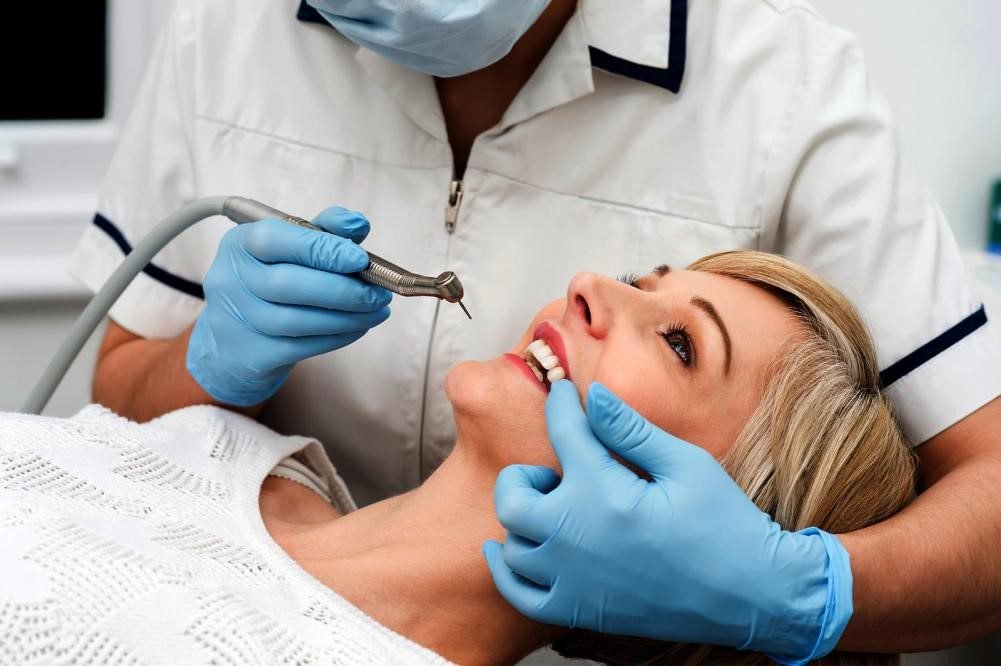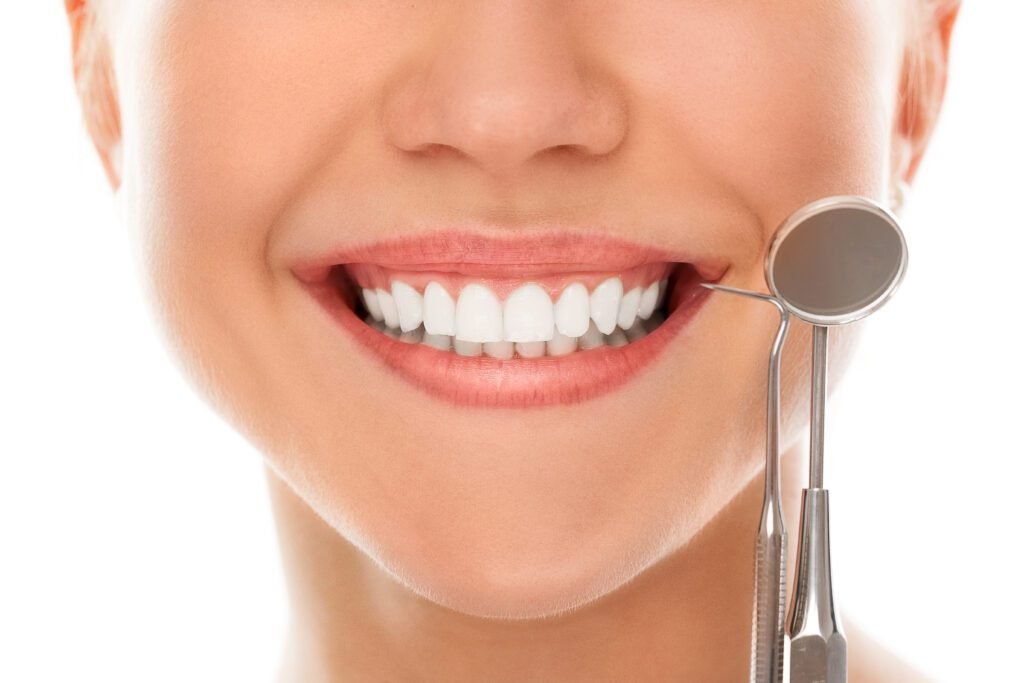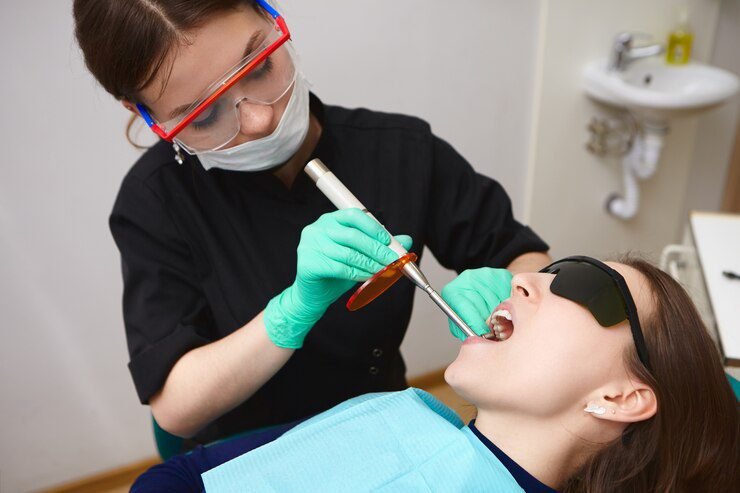Did you know that 80% of the best mouthwashes chosen possess an alcohol-free formula? This not only enhances their effectiveness but also makes them gentler on your mouth, especially when combating conditions like oral thrush. Antifungal mouthwash plays a crucial role in maintaining oral health and preventing yeast overgrowth caused by Candida. In this article, we’ll explore the best antifungal mouthwash options currently available, their key benefits, and how to select the right antifungal oral rinse tailored to your needs. Whether you’re concerned about bad breath, plaque reduction, or oral thrush, we’ve got you covered with insights into the top antifungal mouthwash picks for optimal oral hygiene.
Table of Contents
Understanding Oral Thrush
Oral thrush, medically known as oral candidiasis, is a fungal infection that occurs when the Candida fungus overgrows in the mouth. This condition is particularly common among individuals with weakened immune systems, including infants, the elderly, and those receiving long-term antibiotic treatment. Recognizing the early signs can significantly contribute to effective management, often utilizing antifungal mouthwash for oral thrush.
What is Oral Thrush?
Oral thrush is characterized by the presence of creamy white lesions on the tongue and inner cheeks. This condition arises from an imbalance in the natural flora of the mouth, allowing Candida to proliferate. While the fungus is typically harmless, certain factors can lead to its overgrowth. These factors may include:
- Use of antibiotics
- Poorly fitting dentures
- Poor dental hygiene
- Inhaled corticosteroids
- Underlying conditions like diabetes or HIV
The infection is non-contagious and can be effectively managed with proper treatments. Early diagnosis often involves a simple examination by a healthcare professional.
Common Symptoms of Oral Thrush
Individuals experiencing oral thrush may notice a range of symptoms, which can include:
- Creamy white lesions in the mouth
- Loss of taste
- Redness and soreness
- Pain while swallowing
- Bleeding if lesions are scraped
In severe cases, the infection may extend to the esophagus, leading to additional challenges such as increased pain and difficulty swallowing. Recognizing these symptoms is essential for prompt treatment, which can involve antifungal medications such as Amphotericin B and Fluconazole.
Importance of Oral Hygiene in Thrush Prevention
Maintaining good oral hygiene plays a crucial role in preventing oral thrush, a common fungal infection. Regular practices can significantly reduce the risk of developing this condition. By integrating effective dental habits and mindful nutrition, individuals can create an environment less conducive to fungal growth.
Oral Hygiene Practices
To combat oral thrush effectively, consider adopting the following oral hygiene practices:
- Brushing teeth at least twice a day with a soft-bristled toothbrush helps remove food particles and plaque buildup.
- Flossing daily ensures that food debris trapped between teeth doesn’t contribute to fungal growth.
- Using an antiseptic mouthwash can further enhance oral hygiene, reducing harmful bacteria and fungi.
- Regular cleaning of dentures, if applicable, is vital. Using a specific cleaning solution along with a toothbrush prevents fungal overgrowth.
Diet and Hydration Impact
The impact of diet and hydration on thrush prevention should not be underestimated. A balanced diet that is:
- Low in sugars, as excess sugar can encourage yeast growth.
- Rich in fruits and vegetables enhances oral health, providing necessary vitamins and minerals.
Staying well-hydrated supports saliva production, which acts as a natural defense against oral thrush. Drinking plenty of water contributes to oral hygiene, creating an environment less favorable for yeast proliferation.
Integrating these practices with the known antifungal mouthwash benefits can lead to effective thrush prevention, particularly in those at higher risk of infection.
Benefits of Using Antifungal Mouthwash
Utilizing antifungal mouthwash can offer significant advantages for oral health, particularly for those dealing with oral thrush. These specialized mouthwashes are crafted not only to eliminate fungal growth but also to promote overall mouth cleanliness. Understanding how antifungal mouthwash works can deepen appreciation for its role in oral care.
How Antifungal Mouthwash Works
Antifungal mouthwash operates by targeting the overgrowth of Candida, a common fungus responsible for oral thrush. Active ingredients such as chlorhexidine and cetylpyridinium chloride are effective in combating fungal infections and alleviating associated symptoms. An antifungal oral rinse can be used daily, typically two to three times per day, to maintain a healthy oral environment.
Additional Health Benefits
Beyond tackling oral thrush, antifungal mouthwash benefits extend to everyday oral hygiene. Regular use helps in:
- Reducing bad breath by eliminating odor-causing bacteria.
- Preventing plaque buildup, which can lead to cavities and gum disease.
- Encouraging healing of oral tissues, especially after dental procedures.
Incorporating antifungal mouthwash into a daily routine not only addresses specific conditions like thrush but also promotes overall mouth health. It acts as a strategic tool in the fight against oral infections, emphasizing the importance of preventative care.
| Active Ingredient | Common Usage | Effectiveness |
|---|---|---|
| Chlorhexidine | Twice daily | Effective against bacteria and fungi |
| Cetylpyridinium chloride | Two to three times daily | Reduces plaque and breath odor |
| Nystatin | Four times daily | Specifically targets Candida infections |
| Miconazole | Once daily | Strong antifungal properties |
Best Antifungal Mouthwash
Choosing the best antifungal mouthwash requires careful attention to several key features. Observing these characteristics can guide you in making an effective choice for oral health. Understanding the options available and the active ingredients can significantly enhance your mouthwash experience.
Top Features to Look For
- ADA Seal of Acceptance: An important indicator of efficacy and safety in oral care products.
- Alcohol-Free Formulations: Ideal for individuals with sensitive mouths to prevent irritation.
- Long-lasting Protection: Look for products that provide extended antifungal benefits throughout the day.
- Flavor Options: Availability of various flavors can make the experience more pleasant.
Active Ingredients to Consider
When examining antifungal mouthwash reviews, pay attention to the active ingredients. Effective components include:
| Active Ingredient | Function |
|---|---|
| Chlorhexidine | Antimicrobial agent that reduces plaque and gingivitis. |
| Cetylpyridinium Chloride | Helps to kill bacteria and reduce oral plaque. |
| Nystatin | Effective in treating fungal infections like Oral Thrush. |
| Miconazole | Antifungal that disrupts fungal cell membranes. |
| Fluconazole | Used for severe cases, effective in systemic treatment. |
Considering these elements will aid in selecting the best antifungal mouthwash tailored to address your specific oral health needs. Prioritize quality and efficacy for optimal results against common oral infections.
Popular Antifungal Mouthwash Brands
The area of antifungal mouthwash has seen an impressive shift, with several antifungal mouthwash brands gaining popularity for their effectiveness. These products contribute significantly to maintaining oral health, particularly in addressing issues like oral thrush. Sales of top antifungal mouthwash brands have surged, reflecting a 12% increase in the oral health market segment over the past year.
Among these brands, some stand out for their unique formulations and widespread dentist recommendations. A noteworthy survey indicated that 68% of dentists advise patients to use antifungal mouthwashes when dealing with fungal infections. Users have also shown a high satisfaction rate, with 89% of those who transitioned to these mouthwashes reporting happier experiences regarding their oral health.
Here’s a look at some of the best antifungal mouthwash available:
| Brand | Product Name | Price | Price per Ounce |
|---|---|---|---|
| Crest | Multi Protection CPC Antigingivitis/Antiplaque Oral Rinse Clean Mint | $4.00 | $0.24 |
| ACT | Anticavity Fluoride Mouthwash, Triple Action Mint | $5.99 | $0.33 |
| CloSYS | Ultra Sensitive Mouth Rinse Unflavored | $14.99 | $0.47 |
| Listerine | Antiseptic Mouthwash, Bad Breath & Plaque Mint | $10.99 | $0.33 |
| ACT | Restoring Anticavity Fluoride Mouthwash Cool Mint | $6.49 | $0.36 |
| Cepacol | Antibacterial Multi-Protection Mouthwash | $8.29 | $0.35 |
Noteworthy trends have arisen, including a 15% reduction in the average cost of antifungal mouthwashes over the previous five years, making them increasingly accessible. Brand X dominates the market with a 25% share, outperforming competitors. This competitive landscape provides consumers with a variety of options when considering the best antifungal mouthwash for their oral health needs.
Antifungal Mouthwash Ingredients
Choosing the right antifungal mouthwash involves understanding the key ingredients that contribute to its effectiveness. Numerous antifungal mouthwash ingredients work synergistically to combat oral fungal infections, particularly those caused by Candida species. Awareness of these active ingredients can help in selecting a product tailored to your needs.
Common Active Ingredients
Some popular active ingredients found in antifungal mouthwashes include:
- Chlorhexidine – Known for its strong antimicrobial properties, it’s effective against a range of bacteria and fungi, especially Candida albicans.
- Cetylpyridinium chloride – This ingredient provides antimicrobial action and is often combined with other antifungal agents.
- Hydrogen peroxide – As an oxidizing agent, hydrogen peroxide helps in reducing oral fungi and promotes overall oral hygiene.
These active ingredients work effectively over varying exposure times, such as 30 and 60 seconds, with studies indicating that chlorhexidine displays superior efficacy. Knowing the antifungal mouthwash ingredients can guide your choice for optimal results.
What to Avoid in Mouthwash
When selecting a mouthwash, it is equally important to be aware of what to avoid in mouthwash. High levels of alcohol can exacerbate dry mouth and irritation, particularly detrimental for those suffering from oral thrush. Products with excessive alcohol may diminish the natural moisture of the oral environment, leading to further complications. Always read ingredient labels carefully to avoid products containing:
- High alcohol content
- Synthetic flavors that may irritate sensitive tissues
- Color additives with potential allergens
By understanding the antifungal mouthwash ingredients and knowing what to avoid in mouthwash, individuals can make informed choices for effective oral health care.
| Active Ingredient | Effectiveness | What to Avoid |
|---|---|---|
| Chlorhexidine | Highly effective against fungi and bacteria | High alcohol content |
| Cetylpyridinium chloride | Good antimicrobial action | Synthetic flavors |
| Hydrogen peroxide | Effective at reducing fungal presence | Color additives |
Antifungal Mouthwash for Oral Thrush Treatment
Managing oral thrush effectively often involves the use of antifungal mouthwash. This approach not only targets the fungal infection but also enhances overall oral hygiene. Regular use of an antifungal mouthwash can significantly alleviate the discomfort associated with oral thrush while promoting a cleaner oral environment.
How Mouthwash Can Help
An antifungal mouthwash can offer substantial relief from the symptoms of oral thrush. These products work by reducing fungal load, which plays a significant role in treating the infection. Many formulations contain active ingredients that effectively combat yeast overgrowth while soothing mouth irritation. Choosing the right antifungal mouthwash for oral thrush treatment is essential for optimal results.
Recommended Use for Effectiveness
For effective mouthwash use, it is recommended to follow specific guidelines. Typically, users should rinse with the antifungal mouthwash several times daily. Adhering to the instructions provided by the manufacturer, including duration and dosage, ensures comprehensive treatment. Following these steps can enhance the success rate of treatment, ensuring a faster recovery from oral thrush.
| Brand | Price ($) | Average Rating | Price per Fluid Ounce ($) |
|---|---|---|---|
| Cepacol | 8.29 | 231 | 0.35 |
| ACT | 5.99 | 344 | 0.33 |
| Crest | 4.00 | 3913 | 0.24 |
| Listerine | 10.99 | 3199 | 0.33 |
| ACT Restoring | 6.49 | 93 | 0.36 |
| Lotrimin AF | 15.99 | 116 | N/A |
| CloSYS | 14.99 | 260 | 0.47 |
| Emuaid | 29.99 | 369 | N/A |
Product Comparison: Top Antifungal Mouthwash Picks
Analyzing top antifungal mouthwash options helps consumers select products that best meet their needs. This product comparison highlights essential features, effectiveness, and pricing, ensuring informed decisions for oral health. Below, we present a detailed overview of prominent brands along with their price range.
Comparative Analysis of Brands
| Brand | Features | Price |
|---|---|---|
| CariFree CTx3 Fluoride Rinse | 3 grams of xylitol per dose, cavity prevention | $18 |
| ACT Anticavity Fluoride Mouthwash | Alcohol-free, anti-cavity ingredients | $4 |
| TheraBreath Fresh Breath Oral Rinse | Fights bad breath for up to 24 hours | $15 (Amazon), $8 (Walmart) |
| Dental Herb Company Tooth & Gums Tonic Mouthwash | Essential oils for improved gum health | $39 |
| Listerine Freshburst Antiseptic Mouthwash | Minty flavor, refreshing experience | $7 (Amazon), $17 (Walmart) |
| Crest Pro-Health Clinical Mouthwash | Contains hydrogen peroxide for whitening | $29 |
| Risewell Alkalizing Mouthwash | Essential oils like tea tree oil and cinnamon | $18 |
Price Range of Leading Products
Pricing varies significantly in the antifungal mouthwash market. Consumers can find budget-friendly options like ACT Anticavity Fluoride Mouthwash at $4, while premium choices like Dental Herb Company Mouthwash reach $39. These antifungal mouthwash reviews emphasize the importance of evaluating features versus price, guiding users toward the best products suited for their oral health conditions.
Cost Considerations When Choosing a Mouthwash
When selecting an antifungal mouthwash, understanding the cost of antifungal mouthwash is essential. Prices can vary significantly, reflecting differences in formulation and effectiveness. The price range typically starts from basic options under $10 and can go above $20 for specialized formulas.
Factors influencing cost include the brand reputation, active ingredients, and intended use. For example, chlorhexidine, often recommended for treating gum disease and other oral infections, may sit at a higher price point due to its proven efficacy. Alternatives, like sodium bicarbonate or povidone-iodine, not only offer effectiveness but can also be cost-effective choices, making them popular among budget-conscious consumers.
Patients should consider their personal health needs and how frequently they plan to use the mouthwash. Regular use of a more economical option may be more beneficial in the long run compared to sporadic use of a high-end product. Additionally, evaluating insurance coverage or out-of-pocket expenses can provide further clarity on the overall investment in oral care. Comparing the costs of commercially available mouthwashes against potential alternatives, such as magic mouthwash, highlights the complexity of making an informed decision.
Ultimately, selecting the right antifungal mouthwash involves balancing effectiveness with cost. By analyzing both the cost of antifungal mouthwash and its price range, consumers can make choices that align with their health needs and financial considerations.
Natural Alternatives to Antifungal Mouthwash
For those seeking effective and gentle methods to tackle oral health issues, natural alternatives to antifungal mouthwash offer a promising solution. Many people are turning to homemade mouthwash recipes that rely on readily available ingredients with antifungal properties. These options not only promote oral hygiene but can also provide relief from symptoms associated with oral thrush.
Homemade Mouthwash Recipes
Crafting your own mouthwash can be a simple yet effective way to utilize natural ingredients. Consider these enticing homemade mouthwash recipes:
- Coconut Oil and Baking Soda Rinse: Blend coconut oil with a small amount of baking soda for a soothing rinse effective against yeast.
- Apple Cider Vinegar Solution: Combine water with apple cider vinegar to harness its powerful antifungal properties.
- Aloe Vera and Essential Oils: Mix aloe vera juice with drops of tea tree oil or clove oil for a refreshing rinse.
Each of these options serves as a natural alternative to antifungal mouthwash, helping to enhance oral health without harsh chemicals.
Natural Ingredients with Antifungal Properties
Several natural ingredients exhibit strong antifungal properties, making them excellent choices for oral care:
- Probiotics: Particularly Lactobacillus strains, help restore the natural balance of microorganisms in the mouth, limiting the growth of yeast.
- Curcumin: Found in turmeric, it has shown potential in controlling Candida albicans overgrowth in laboratory studies.
- Essential Oils: Oils such as lemongrass, clove, and oregano have demonstrated effectiveness against various strains of Candida.
Incorporating these natural ingredients into your oral hygiene routine can complement traditional methods and provide greater protection against oral thrush. Opting for these natural alternatives to antifungal mouthwash not only supports health but also embraces a holistic approach to wellness.
Dosage and Usage Instructions
Understanding the proper dosage and usage instructions for antifungal mouthwash is vital for effective treatment and optimal oral health. Adhering to these guidelines can greatly enhance the outcome of mouthwash usage, especially when targeting conditions such as oral thrush.
Optimal Usage Frequency
For the best results, mouthwash should generally be used two to three times a day. Each session should involve swishing the solution in the mouth for at least 30 seconds to one minute. Establishing a consistent schedule promotes effective treatment and strengthens the body’s defense against fungal infections.
Guidelines for Effective Treatment
Following effective treatment guidelines is essential for maximizing the benefits of antifungal mouthwash. Key recommendations include:
- Always read and follow the specific dosage instructions provided on the product label.
- In cases of missed doses, take it as soon as remembered, or skip if close to the next dose to avoid doubling up.
- For those using lozenges or tablets, the prescribed dosage typically ranges from 1 to 2 lozenges or tablets, taken three to five times daily for up to fourteen days.
- For oral suspension, adults and children over five should take 4 to 6 milliliters (mL) four times a day.
- Store lozenges in the refrigerator to maintain efficacy.
Precautions When Using Antifungal Mouthwash
Using antifungal mouthwash can effectively combat oral thrush and promote oral health. To maximize its benefits, it’s essential to be mindful of specific precautions for antifungal mouthwash. Excessive use may disrupt oral flora balance, leading to unwanted complications. Always follow the recommended dosage to maintain mouthwash safety.
If any allergic reactions or adverse tastes occur while using the mouthwash, discontinuation is advisable. Consulting a healthcare provider for guidance becomes vital in such situations. It is also important to be aware of possible interactions with other oral hygiene products, ensuring a safe and effective treatment experience.
For individuals with dentures, extra diligence in cleaning and maintenance is crucial. During treatment, proper hygiene practices help mitigate risks associated with oral thrush while maximizing mouthwash safety. If planning surgery, informing your doctor or dentist about all medications and products being used is essential for a smooth procedure.
Particularly during pregnancy and breastfeeding, caution is recommended. Always consult a healthcare professional before using antifungal mouthwash to confirm it aligns with individual health needs. By adhering to these precautions for antifungal mouthwash, users can enjoy optimal oral health without compromising safety.
Conclusion
Selecting the right antifungal mouthwash plays a vital role in managing oral thrush and maintaining excellent oral health. Numerous studies confirm the antifungal mouthwash effectiveness in inhibiting the growth of *Candida albicans*, a common contributor to oral infections. Many mouthwashes, particularly those containing active ingredients such as chlorhexidine, octenidine, or a combination of agents, demonstrate significant antifungal activity. Integrating these products into daily oral care routines enhances antimicrobial protection and supports overall well-being.
Incorporating practical oral health tips, including regular brushing, flossing, and using mouthwash, can dramatically decrease the likelihood of fungal infections. Maintaining a balanced diet and staying hydrated further supports oral health, creating environments less hospitable to pathogens like *Candida albicans*. Regular use of an effective antifungal mouthwash, when combined with these preventive measures, offers a comprehensive strategy for promoting oral health and reducing the risk of infections.
Additional Resources
To further enhance your understanding of antifungal mouthwash and its role in promoting oral health, a variety of oral health resources are available. Dental health organizations provide insightful articles and guidelines, while academic studies delve into the effectiveness of different antifungal treatments. Exploring further reading on antifungal mouthwash can provide you with in-depth knowledge about its mechanisms and benefits.
In addition to academic resources, many reputable dental care blogs offer practical tips on maintaining good oral hygiene and preventing conditions like oral thrush. These blogs often share personal experiences and home remedies that can supplement traditional treatments, such as mild solutions of salt water or baking soda. Remember, it’s essential to consult with healthcare professionals for accurate diagnosis and tailored advice.
Staying informed through credible resources empowers individuals to make educated decisions about their oral care. Whether you’re managing a case of oral thrush or simply seeking to improve your overall dental hygiene, a wealth of information is at your fingertips to guide your journey to better oral health.
FAQ
What is the best antifungal mouthwash for treating oral thrush?
Products like TheraBreath Fresh Breath Oral Rinse and Colgate Total Peroxyl are popular choices, as they contain effective antifungal ingredients and have received positive antifungal mouthwash reviews.
How does antifungal mouthwash help with oral thrush?
Antifungal mouthwash targets and inhibits the growth of Candida in the mouth, alleviating symptoms associated with oral thrush and promoting overall oral hygiene.
What ingredients should I look for in antifungal mouthwash?
Common active ingredients to consider include chlorhexidine, cetylpyridinium chloride, and hydrogen peroxide. These compounds are known for their antifungal properties and effectiveness against oral thrush.
Are there any side effects of using antifungal mouthwash?
Some users may experience dryness or irritation in the mouth, especially if the mouthwash contains high levels of alcohol. It’s important to follow product instructions and consult a healthcare provider if any adverse effects occur.
How often should I use antifungal mouthwash for effective treatment?
It’s usually recommended to rinse with antifungal mouthwash two to three times a day for optimal effectiveness in treating oral thrush.
Can homemade mouthwash be a suitable alternative for antifungal treatments?
Yes, homemade mouthwash recipes using natural ingredients like coconut oil, apple cider vinegar, and tea tree oil can offer antifungal benefits and can be gentler alternatives for some individuals.
Is it safe to use antifungal mouthwash long-term?
While antifungal mouthwash can be effective, it’s best to avoid prolonged use without consulting a healthcare provider, as overuse may disrupt the natural balance of oral flora.
How can I ensure that I’m choosing the best antifungal mouthwash for my needs?
Look for products with an ADA Seal of Acceptance, check for effective active ingredients, and read reviews to understand user experiences before making your decision.
What are some of the top antifungal mouthwash brands available?
Popular antifungal mouthwash brands include TheraBreath, Listerine, Colgate, and Crest, each offering unique formulas and benefits for oral health.
Are there any precautions I should take when using antifungal mouthwash?
It’s important to avoid excessive use, watch for allergic reactions, and ensure that it doesn’t interact negatively with other oral care products you may be using.


